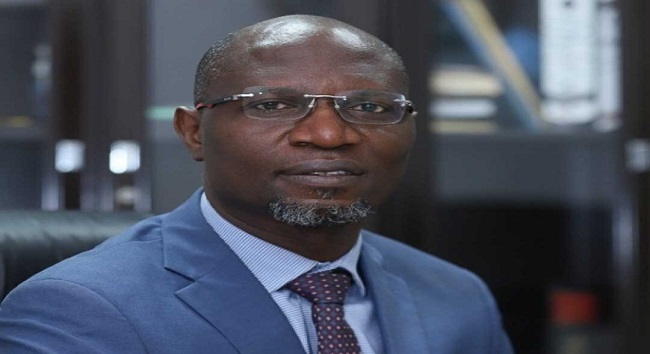News
Kaspersky Expands its Cyber Immune Offering for Internet of Things Protection with new IoT Secure Gateway 1000

Kaspersky IoT Secure Gateway 1000 is the company’s latest Cyber Immune product for organisations embracing digital transformation, helping them to accelerate business value from new streams of industrial data.

The gateway connects IoT devices and controllers with business applications and cloud platforms. It then ensures the security of these interactions and the data transferring through them due to the secure KasperskyOS in the gateway’s core and its network attack protection capabilities.
Customers operating smart city systems, including utilities, street lighting and road infrastructure, or in manufacturing or energy production and distribution projects, get a secure IoT system and visibility across all connected devices. The solution is being presented at GITEX Global in Dubai, UAE this week as a pilot project.
IoT is continuing to penetrate businesses: according to Gartner, 61% of organisations already show a high level of IoT maturity. According to Kaspersky telemetry, from January to September 2022, there were 67,000 infected IoT across the Middle East, Turkey and Africa.
These devices were responsible for 11 million attacks. There was a spike in attacks coming from the region in the third quarter of 2022: from July to September the number of attacks increased sevenfold – by 659%.
Given the increase in the number of outgoing attacks, the spike could be explained by the deployment of new bulletproof hosts by cybercriminals to increase their botnet size. Presumably this has been done in Turkey, which has the region’s largest share of outgoing attacks.
Given the diversity of IoT devices and their related cybersecurity risks (https://zd.net/3MoHbTX), the need for their protection is clear, especially when it comes to smart cities or critical infrastructure. Traditional measures are not sufficient for IoT protection, making it crucial that specialised security solutions are implemented.
A reliable shield from network attacks and gateway threats
The new Kaspersky IoT Secure Gateway 1000 is a hardware appliance with firmware based on KasperskyOS and Advantech UTX-3117 device. It ensures the security of the entire IoT system at the gateway level thanks to its secure-by-design approach and built-in protection capabilities.
It provides industry with protection from network attacks, as well as DDoS or Man-in-the-Middle attempts, through a firewall that uses the principle of Default Deny. This only allows preapproved network interactions to pass through the gateway.
Additionally, the Intrusion Detection and Prevention module (IDS/IPS) detects and blocks malicious activities.
The gateway is made immune to most attacks by KasperskyOS, which sits at its core. The operating system features a microkernel which minimises the risk of vulnerabilities and decreases the attack surface through just a few thousand lines of code.
The minimal number of trusted components in the operating system, security domain isolation, scanning of inter-process communications and the Multiple Independent Levels of Security (MILS) architecture ensure that most types of attacks are not able to affect the gateway’s functions.
Its security goals were defined at its inception, making Kaspersky IoT Secure Gateway 1000 secure-by-design.
Furthermore, secure boot and update technologies ensure the authenticity and integrity of the gateway’s firmware and updates. The secure boot blocks firmware from loading if it is damaged or altered without authorisation. Secure update guarantees that only correct updates from trusted sources will be uploaded to the device.
A convenient tool for IoT device visibility and security management
Kaspersky IoT Secure Gateway 1000 helps network administrators maintain visibility and control over the network. It shows all devices connected to the network and detects and classifies new ones within a minute of connecting. The interface provides IT or OT teams with necessary details about devices, including type, vendor and operating system.
This product is managed through Kaspersky Security Center, where all security events can be viewed. The gateway supports Syslog and MQTT protocols, which permit all security events to be transmitted to external systems, such as SIEM or cloud platforms like Microsoft Azure, Siemens MindSphere, AWS, IBM Bluemix and others.
Kaspersky Security Center also facilitates unified administration of Kaspersky enterprise products, such as those for endpoint and cloud protection. Customers can completely protect their IoT suite, from the gateway to the cloud, and manage it through one centralised administration console.
“With this new gateway, Kaspersky expands its portfolio for IoT infrastructure protection. In 2021, we launched Kaspersky IoT Secure Gateway 100, dedicated to Industrial IoT and safe data delivery from manufacturing to business applications.
“The next generation of gateways delivers more IoT security and management functions important for industries and operations with increased security requirements, such as smart cities, transportation networks, video surveillance and critical infrastructure.
“The Cyber Immunity approach embodied in the firmware ensures that most threats cannot affect the security status of a device or the whole IoT system of the enterprise,” comments Andrey Suvorov, Head of KasperskyOS Business Unit at Kaspersky.
Kaspersky IoT Secure Gateway 1000 will be available in Middle East as a pilot project. The Kaspersky team will consider the possibility of enabling test implementations with interested customers on a case-by-case basis.
News
UN Says Billion-Dollar Cyberscam Industry spreading Globally

Crime syndicates have made billions scamming victims in Asia and are now expanding their operations to Africa, Europe, South America and further, according to a United Nations report on Monday.

The UN said Chinese and Southeast Asian gangs were targeting victims through investment, cryptocurrency, romance and other scams.
According to the United Nations Office on Drugs and Crime (UNODC), cyberscams are now a sophisticated global industry, featuring sprawling compounds housing tens of thousands of mostly trafficked workers who are forced to con other people online.
“It spreads like a cancer,” said Benedikt Hofmann, UNODC Acting Regional Representative for Southeast Asia and the Pacific said. “Authorities treat it in one area, but the roots never disappear; they simply migrate.”
While the activity had largely been focused on the border areas in Myanmar, a country torn by civil war, and dubious “special economic zones” set up in Cambodia and Laos, UNODC reported networks are expanding their operations to South America, Africa, the Middle East, Europe and some Pacific islands.
“This reflects both a natural expansion as the industry grows and seeks new ways and places to do business, but also a hedging against future risks should disruption continue and intensify in Southeast Asia,” Hofmann added.
Countries in east and southeast Asia lost an estimated $37 billion (€32.5 billion) to cyber fraud in 2023, while the United States reported more than $5.6 billion (€4.9 billion) in losses the UNODC report said.
There were also raids in Cambodia, but they prompted the crime syndicates to move to “more remote locations” and border areas.
Cambodian government spokesman Pen Bona said the country is among the victims of the cyberfraud industry and is committed to fighting it.
According to Bona, the government has established an ad-hoc commission chaired by Prime Minister Hun Manet which seeks to boost law enforcement and legal tools while working with international partners and the UN.
UNODC urged the international community to act, saying it was at a “critical inflection point.”
According to the UN, staying aside would have “unprecedented consequences for Southeast Asia that reverberate globally.”
News
CADEF Hosts Workshop to Drive Distributed Energy Solutions in Nigeria

Consumer Advocacy and Empowerment Foundation (CADEF) a leading not for profit organisation in consumer rights and advocacy in Nigeria has announced a high-level Distributed Energy Resources (DER) Stakeholders’ Workshop scheduled to hold on Thursday, April 24, 2025, at The Providence Hotel, Ikeja GRA, Lagos.

Themed “Overcoming Barriers to a Sustainable Energy Transition”, the workshop aims to provide a platform for robust dialogue and action among policymakers, energy sector experts, investors, development partners, and clean energy advocates.
The Federal Government of Nigeria had in May 2015 approved the National Renewable Energy and Energy Efficiency Policy (NREEEP) as well as the National Determined Contribution (NDC), 2015, which seeks to increase the share of on-grid renewable energy in the total electricity supply from 1.3% in 2015 to 30% in 2030.
As Nigeria pursues its Vision 30:30:30 to generate 30,000MW of electricity by the year 2030, with 30% from renewable energy, CADEF with other experts in the sector will through the stakeholders workshop provide practical and scalable DER solutions, with sessions addressing access to Solar Financing and Investment Opportunities, DER integration strategies and grid resilience, policy and regulatory developments, emerging technologies and case studies.
Speaking ahead of the event, Prof. Chiso Ndukwe-Okafor, Executive Director of Consumer Advocacy and Empowerment Foundation (CADEF), stated: “This workshop is not just about dialogue, it’s about driving action. Distributed energy resources hold the key to unlocking sustainable and inclusive energy access, especially for underserved communities. Through this engagement, we aim to foster cross-sector collaboration and equip stakeholders with the tools and insights needed to scale solutions that work.”
Participants will gain first-hand insights from trailblazers in the clean energy space, while shaping policy and investment discourse on Nigeria’s energy transition. With a rapidly growing demand for reliable electricity, DER technologies such as solar mini-grids, battery storage, and hybrid systems are increasingly vital for Nigeria’s energy mix.
Lovelyn Okafor, CADEF’s Director of Programmes, emphasized the significance of the workshop: “The time is ripe to leverage distributed energy innovations to build a resilient and inclusive energy future. We are bringing together voices that matter, from grassroots change-makers to top-tier investors and government officials to spark lasting transformation.”
Consumer Advocacy and Empowerment Foundation has been at the fore, driving change in the renewable energy sector through some key innovative interventions such as the unveiling of the Distributed Energy Resources (DER) one-stop shop at der.cadefng.org in 2024, a digital platform created to revolutionize how stakeholders and businesses across the DER ecosystem perceive, access and manage energy solutions.
CADEF also announced the launch of the greenlabs programme in collaboration with Jacob’s Ladder Africa, an initiative designed to inspire, equip, and empower young Nigerians to create sustainable, climate-smart solutions that address critical environmental and socio-economic challenges.
Sessions during the workshop will include a live demonstration of the newly launched DER platform (Renew Energy Naija) at DER.CADEFNG.ORG, panel discussions on financing and incentives, public-private partnerships and international collaborations.
CADEF believes that by strengthening multi-stakeholder collaboration, Nigeria can unlock the full potential of decentralized renewable energy, boost energy access, and empower millions of underserved households and businesses.
The workshop is strictly by confirmed registration and part of CADEF’s broader commitment to advancing energy equity and sustainability through advocacy, innovation, and capacity building.
For inquiries or partnership opportunities, please contact: info@cadefng.org | +234 (0) 7088873723
News
SEC Cracks Down on Influencers, Bloggers Promoting Fraudulent Investment Schemes

Securities and Exchange Commission (SEC) has issued a stern warning to social media influencers, bloggers, and celebrities, urging them to desist from promoting unregistered and fraudulent investment schemes. The warning was issued by the SEC’s Director-General, Dr Emomotimi Agama, in a notice released on Sunday in Abuja.

Dr Agama noted that the Commission is working in close collaboration with the Economic and Financial Crimes Commission (EFCC), the Nigeria Police Force, and other relevant government agencies to identify and prosecute those found guilty of flouting investment regulations.
Highlighting the provisions of the newly enacted Investments and Securities Act (ISA) 2025, Dr Agama said the law specifically targets the promoters of unregistered investment schemes, including individuals who use their platforms to endorse such ventures.
“The law also covers influencers and bloggers who promote fraudulent schemes, with clear penalties, including imprisonment,” he stated.
Citing the recent collapse of CBEX—a digital investment platform accused of defrauding Nigerians of over ₦1.3 trillion—Agama described the incident as a stark reminder of the dangers posed by unregulated financial platforms. CBEX allegedly promised unrealistic returns and falsely claimed international partnerships.
“The collapse of CBEX underscores the urgency of our crackdown. We are shutting down their operations, and the promoters will face the full weight of the law,” he added.
Agama reiterated the Commission’s resolve to protect investors and develop Nigeria’s capital market. He urged Nigerians to verify any investment opportunity with the SEC before committing their money, advising: “If it sounds too good to be true, it probably is.”
He also reassured the public of the SEC’s capability to detect and shut down Ponzi schemes, stating, “We have dealt with similar schemes in the past and will continue to do so, leveraging the powers of the ISA 2025 to safeguard investors.”
In a bid to strengthen regulatory oversight, the SEC has established dedicated departments tasked with monitoring market activities and conducting inspections aimed at detecting irregularities early.
“These proactive measures are designed to prevent large-scale frauds like CBEX from recurring,” Dr Agama said.
He concluded by emphasising the significance of the ISA 2025 as a critical tool in securing the Nigerian investment landscape and building a resilient and transparent financial market.

 Telecom1 day ago
Telecom1 day agoMTN Nigeria Takes Broadband Services to the Next Level with FibreX Launch

 News1 day ago
News1 day agoSERAP Files Lawsuit Against NBC Over Ban on Eedris Abdulkareem’s Protest Song Tell Your Papa

 E-Financial1 day ago
E-Financial1 day agoFCMB Group Redefines Corporate Storytelling with The Power Of The Group TVC

 E-Financial10 hours ago
E-Financial10 hours agoCBN, NGX Group Defend Economic Reforms at Nasdaq

 General News10 hours ago
General News10 hours agoEFCC Clarifies SCUML Certificate Misuse amid CBEX Ponzi Scheme Scandal

 Telecom10 hours ago
Telecom10 hours agoDigital Transformation Remains Africa’s Gateway to Economic Advancement – Adumike

 Telecom10 hours ago
Telecom10 hours agoPAFON 2.0: Experts Discuss Pathways to Boost Financial Inclusion in Nigeria

 General News10 hours ago
General News10 hours agoFlashChange Partners Ruth Foundation to Empower Vulnerable Children in Alimosho with Skill Acquisition

























